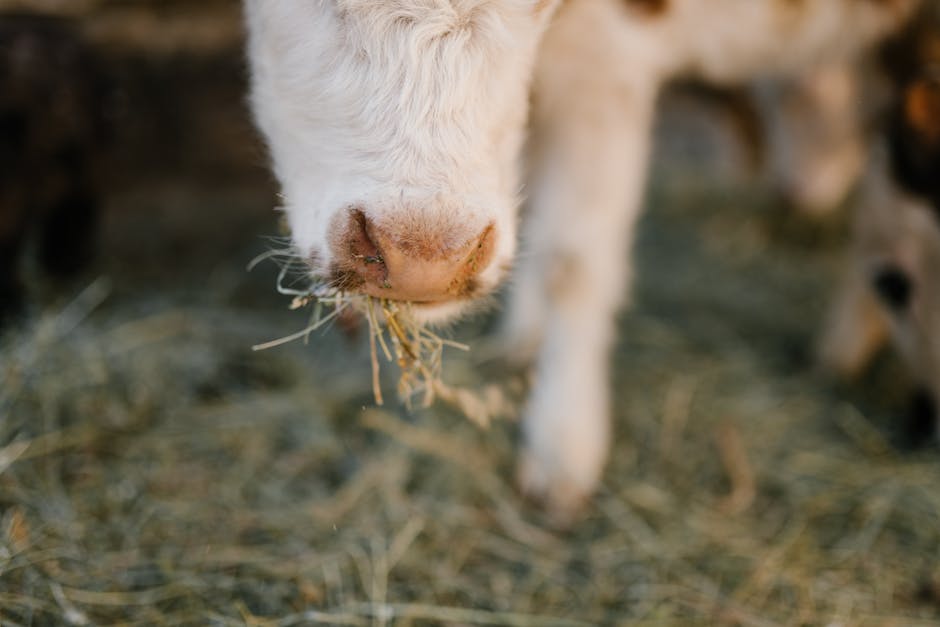The ever-growing human population necessitates a constant reassessment of how we nourish ourselves. The question of who bears the primary responsibility for feeding the world, in the context of agriculture and farming, is multifaceted and complex. It transcends individual nations and spans a spectrum of actors, from governments and corporations to individual farmers and consumers. This essay will delve into the intricate web of responsibilities, highlighting the interconnectedness of each player and the critical need for collaborative solutions.
A significant portion of the onus undeniably rests on agricultural producers, the farmers who till the land and cultivate the crops. Their expertise in soil science, crop rotation, pest control, and irrigation techniques is paramount to achieving high yields and sustainable practices. However, this responsibility extends beyond simply producing food. Modern agricultural methods must account for environmental impacts, minimizing pesticide use and protecting biodiversity. Responsible farming practices, such as agroforestry and integrated pest management, are crucial to ensuring long-term food security.
Beyond the farm gate, a crucial layer of responsibility is vested in governmental bodies. Effective agricultural policies, including land use regulations, subsidies, and import/export controls, can significantly impact food production and accessibility. Governments hold the power to incentivize sustainable farming techniques and support rural communities. They also bear the responsibility of ensuring fair trade practices and food safety regulations. Investment in agricultural research and development plays a crucial role in improving crop yields, enhancing resilience to climate change, and adapting farming to emerging challenges. Policies should also consider the distribution of resources, ensuring access to quality agricultural inputs for smallholder farmers, which often constitute the majority of food producers in many developing countries.
Corporations, both large and small, also play a significant role. Agricultural corporations influence market prices and supply chains, and their actions can have far-reaching consequences. These actors have the potential to significantly impact the availability and affordability of food by investing in advanced agricultural technology or supporting sustainable practices. Conversely, corporations are sometimes accused of prioritizing profit over ethical considerations, potentially leading to exploitation of workers or environmental degradation. The ethical sourcing of agricultural inputs and fair labor practices are among the key responsibilities of corporations engaged in food production and distribution.
The role of international bodies like the Food and Agriculture Organization (FAO) of the United Nations is equally important. These organizations provide valuable expertise and facilitate international cooperation. Their role encompasses supporting knowledge sharing, technological advancements, and initiatives focused on food security in vulnerable regions. The FAO, and similar bodies, can play a crucial bridge between governments, farmers, and consumers, ensuring a more coordinated and comprehensive approach to the global food challenge.
Consumer responsibility is a frequently overlooked but equally critical aspect. Consumer choices have a direct impact on the type of agriculture practiced. Demand for specific products, like organic produce or locally sourced foods, directly influences production practices, encouraging more sustainable farming techniques. Informed consumption patterns can steer markets toward more ethical and environmentally friendly agricultural practices. Consumer awareness about food miles, the impact of packaging, and the working conditions of farm labourers is crucial to drive positive change.
The imperative to feed the world is not a singular responsibility; rather, it’s a collective effort requiring a harmonious interplay between these various stakeholders. Successful approaches will involve a multi-pronged strategy that fosters collaboration and accountability. Governments need to develop effective policies that incentivize sustainable farming practices while supporting small-scale producers. Agricultural corporations can contribute by adopting sustainable agricultural practices and ensuring fair labor standards throughout their supply chains. International organizations must facilitate knowledge sharing and support initiatives focused on empowering local farmers. Finally, conscious consumption choices by individuals will inevitably influence the trajectory of agricultural production.
The long-term sustainability of food production hinges upon a robust combination of knowledge, technology, and collective responsibility. Investing in agricultural research, fostering sustainable practices, and promoting equitable access to resources are crucial steps towards achieving global food security. Addressing the issue necessitates a holistic approach that transcends national boundaries and acknowledges the interconnectedness of each individual stakeholder. Only through collective effort can we ensure that the planet’s growing population has access to nutritious and sustainable food for generations to come.
Furthermore, the influence of climate change is a considerable factor impacting agricultural production. Farmers face unprecedented challenges from fluctuating weather patterns, extreme heat waves, and unpredictable rainfall. Governments need to invest in climate-resilient agriculture. This could include promoting drought-resistant crops and enhancing water management techniques. Recognizing the need for adaptability is paramount to ensuring that agricultural practices remain viable in the face of a changing climate. It emphasizes the need for a proactive and adaptable approach, rather than a static one, to address the evolving challenges in food production.
In conclusion, feeding the world is not the sole responsibility of any single entity. It is a shared commitment that requires collaboration amongst governments, corporations, international organizations, individual farmers, and consumers. Only by acknowledging this interconnectedness and working together can we achieve a sustainable and equitable food system for all. The future of our food security relies on a concerted effort to foster a truly holistic and collaborative approach.






